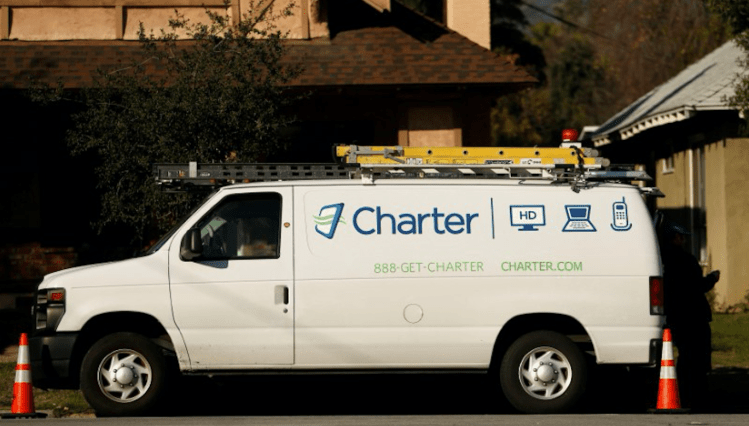Facing impending threats from 5G wireless carriers, cable operator Charter Communications has announced fixed 5G wireless tests in six cities, and plans to expand broadband service in rural communities. At the same time, the company hinted that it will seek “regulatory parity” to prevent wireless competitors from gaining advantages over the wired cable industry.
Charter is currently the second-largest cable operator in the U.S., servicing 25 million customers in 41 states under the Spectrum brand. Lacking a wireless division, Charter focuses on wired internet, phone, and TV services offered over “existing wireline infrastructure” and is testing 5G wireless specifically to provide “wireline-like broadband connectivity and speeds” to customers in rural communities. The company’s 5G tests are ongoing in:
- Orlando, Florida
- Reno, Nevada
- Clarksville, Tennessee
- Columbus, Ohio
- Bakersfield, California
- Grand Rapids, Michigan
Cellular carriers including Verizon, T-Mobile, and AT&T have expressed excitement over ultra-fast 5G’s potential to let them compete in the broadband market. For that reason, Charter’s decision to test 5G is at least as defensive as offensive, enabling the all-wired company to dip its toe in wireless waters while continuing to tout the advantages of its cable infrastructure.
Charter’s announcement frames its 5G tests as part of the discussion over providing broadband access in “cities, suburbs, and rural America.” Not surprisingly, it says that a complete solution won’t be fully wireless, but rather will include improvements to U.S. wired infrastructure.
June 5th: The AI Audit in NYC
Join us next week in NYC to engage with top executive leaders, delving into strategies for auditing AI models to ensure fairness, optimal performance, and ethical compliance across diverse organizations. Secure your attendance for this exclusive invite-only event.
Despite recent optimistic statements — and test results — from Verizon, T-Mobile, and others, Charter suggests that 5G will struggle in rural areas, particularly ones with lots of trees and foliage, and will run into other issues due to low population density. Notably, Charter is conducting trials in the 3.5Ghz band, which may not be as rural-ready as the nationwide 600MHz spectrum acquired by T-Mobile.
Arguably most concerning in the announcement is the prospect that the cable industry might slow 5G’s progress at a key juncture in its development. Charter suggests that with FCC, Congress, and presidential broadband initiatives in play,
[I]t is important that the policies and regulations adopted don’t favor one technology over another. Regulatory parity is also important to maintain and advance competition in the broadband marketplace. Policies or regulations that place more costs and burdens on one side or the other undermine competition, which ultimately harms consumers, innovation and investment.
Some might reasonably see this language as lobbying for the U.S. government — which is currently pro-corporation and anti-regulation — not to tread too lightly on either 5G or the carriers pushing for rapid commercialization. Regardless, Charter’s involvement in 5G testing suggests that traditional cable operators won’t go quietly into the night, and may well adopt its rivals’ technologies to expand their own footprints.

